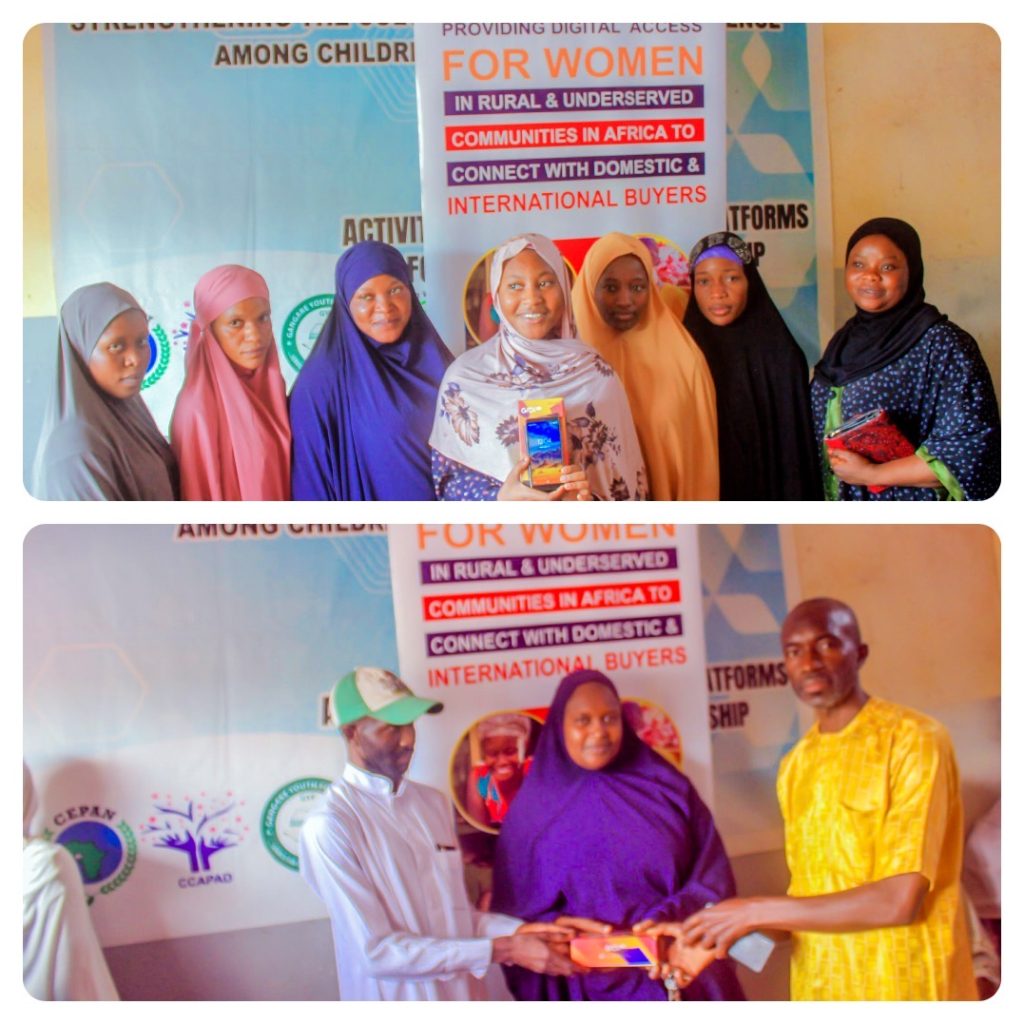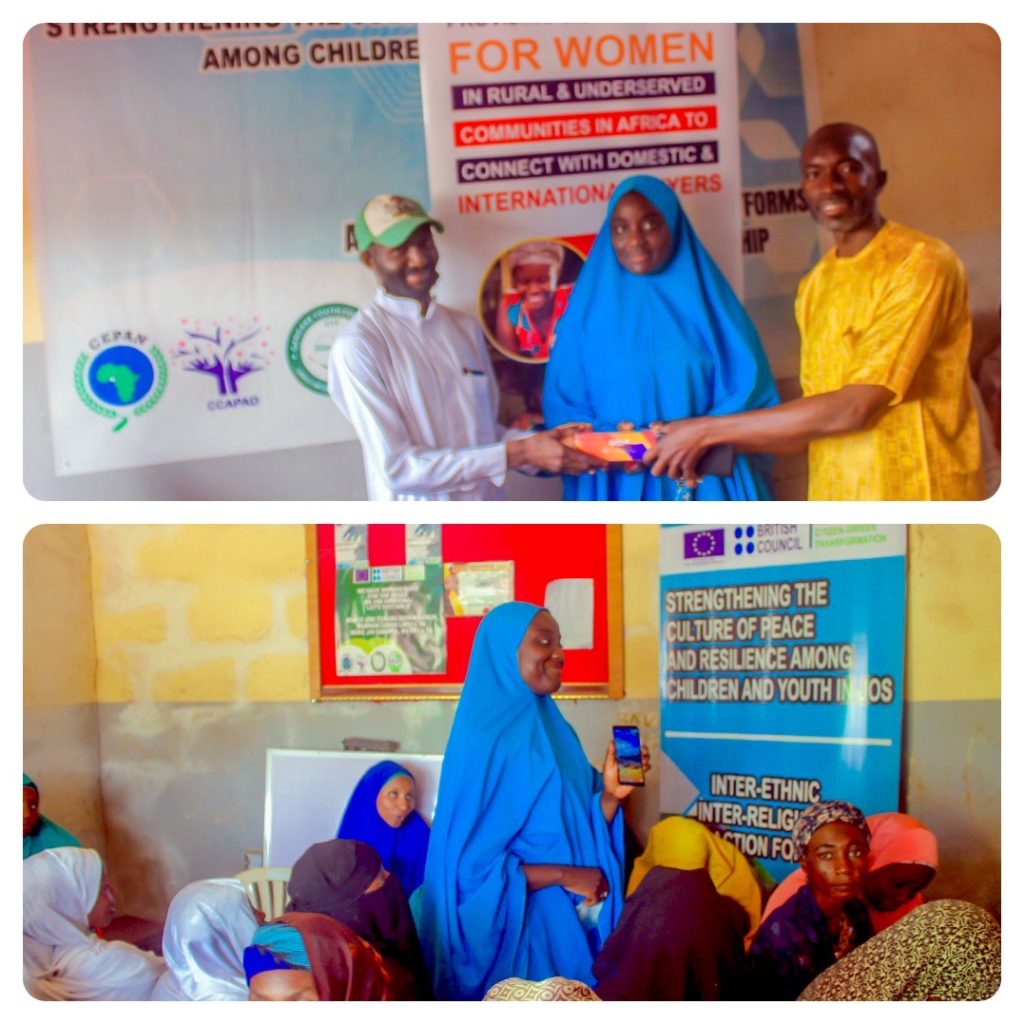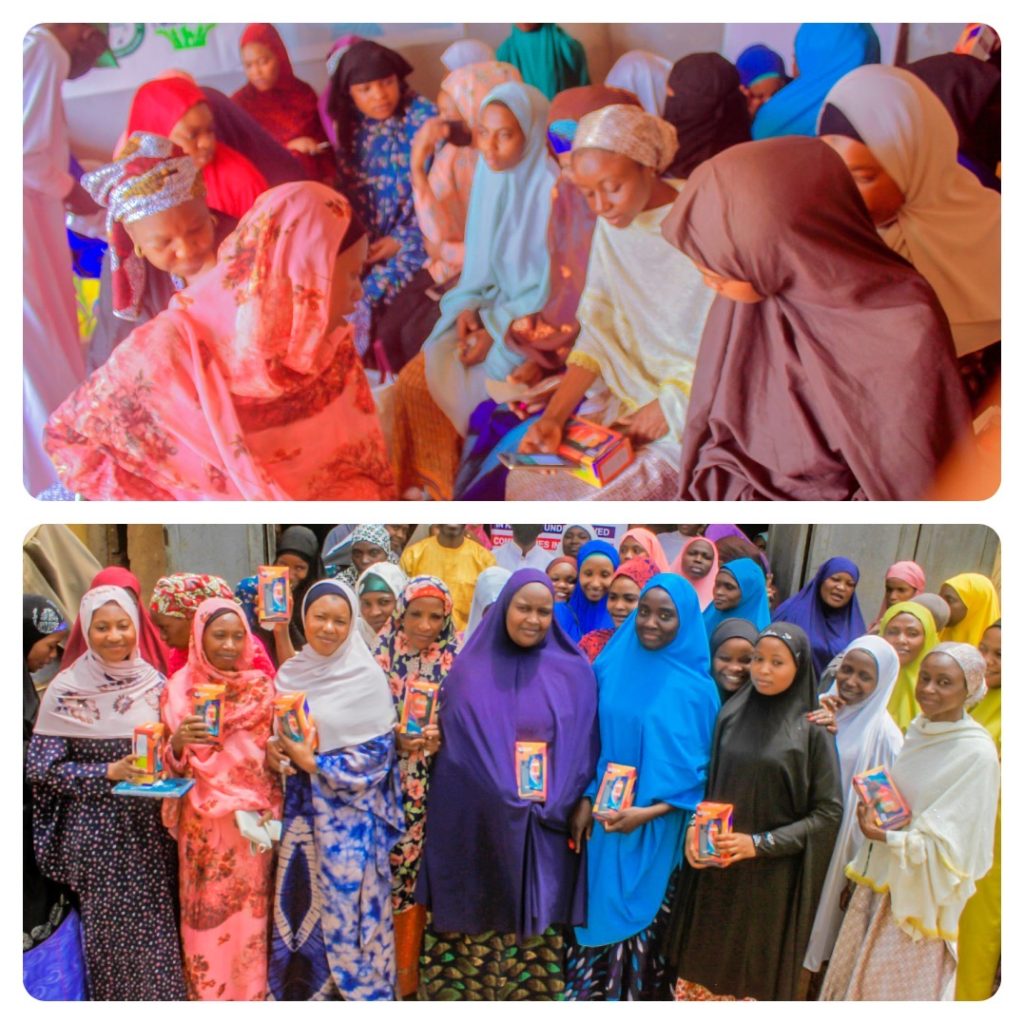Unlocking the Economic Potential of the Women of Gangare Community, Plateau State Leveraging Digital Technology
Project Overview
On March 15, 2024, representatives from Tech Herfrica conducted a comprehensive digital and financial literacy training programme for 75 women in Gangare, Jos North, Plateau State. The training was delivered in the local language, ensuring effective communication and understanding. This was a cumulation of an 8-week engagement with the community.
During the programme, the participants actively engaged in the sessions, acquiring valuable digital and financial knowledge and skills. In addition to the training, 10 clusters comprising 6-8 women each, received smartphones to facilitate ongoing learning and online trade within their clusters.
The training covered essential digital literacy topics, equipping the women to navigate the digital world confidently and use smartphones meaningfully to learn and trade. Furthermore, it provided them with financial literacy skills, equipping them with the ability to manage their finances efficiently, keep simple business records, save, and access financial services like insurance and business loans.
Needs Assessment Findings
A comprehensive pre-assessment session was carried out before the training and the following key findings were revealed:
- SmartPhone Ownership: Only 20% of the women (15) possessed smartphones.
- Banking: 93.33% of women had bank accounts indicating an interest in financial management.
- Digital Identity: 66.67% had National Identification Numbers (NIN).
- E-commerce Awareness: Only 13.33% of the participants had an idea about e-commerce.
- Digital Skills: Limited awareness and usage of essential digital tools such as Google Search, WhatsApp, and Facebook for business purposes.
- Health Insurance: 13.33%11 women had heard about health insurance
- Micro Pension: Less than 10% of the women knew about it
Training Session
The training session was an immersive and participatory experience conducted in the local Pidgin and Hausa languages to foster inclusivity and clear understanding. The overarching aim was to cultivate participants’ enthusiasm, comprehension, and capabilities to use a smartphone, e-commerce applications and access financial services for their economic upliftment.
The content focused on opportunities in the digital economy, including electronic and social commerce, financial technology (fintech), and agricultural technology (agri-tech). Key topics covered how to use applications like WhatsApp, Facebook google search for business, online safety, bookkeeping, understanding financial services, and obtaining farming information.
Programme Outcomes
- Improved Digital and Financial Literacy: The training had a profound impact on enhancing digital and financial literacy, with 93% of the women participants reporting newfound knowledge in these crucial areas.
- Improved Motivation to Leverage Digital Technology: A significant 77% of the women expressed an increased motivation to leverage technology as a catalyst for growth and development.
- Improved Trust in Digital Technology: An overwhelming 91% of participants expressed confidence in utilizing technology for their business and agricultural activities, reflecting a heightened trust in digital solutions.
- Improved Motivation to Access Financial Services: The training fostered a desire for financial inclusion, with 93% of the women expressing interest in accessing financial services. Notably, 93% expressed keen interest in health insurance, and 91% showed enthusiasm for micro-pension opportunities.
- Access to Internet-Enabled Devices: As a pivotal component, ten clusters comprising 6-8 women each were equipped with smartphones, empowering them to leverage technology for improved income, overall well-being, enhanced agricultural output, and boosted trade through e-commerce platforms.
- Community-based Learning: Cluster leaders were appointed to facilitate ongoing learning within the community, fostering a sustainable impact and continuous knowledge-sharing.
- Access to New Markets Leveraging E-commerce: Participants were introduced to leveraging WhatsApp as a sales channel, expanding their access to new markets through digital platforms.



Lessons Learned
- Using local languages for the training helped to foster understanding and adoption of the training concepts.
- Support from political and traditional leaders led to a successful programme
- Holding the programme on a Friday before Ramadan commenced proved ineffective as out of 100 women, only 75 showed up as they had other family commitments.
Sustainability
Facilitating Continuous Engagement
To sustain communication between Tech Herfrica and the community, cluster leaders have been added to a dedicated WhatsApp group created by the Tech Herfrica team. This group serves as a platform for continuous learning, trade facilitation, and the exchange of information, fostering an environment of ongoing engagement and support.
Community-Led Engagement
The programme has been adopted as a community-led initiative and has secured the buy-in of community, political and traditional leaders.
Conclusion
The digital and financial literacy training initiative proved to be a resounding success, having a profoundly positive impact on all participants. The comprehensive programme not only imparted vital knowledge and skills but also instilled a sense of empowerment and motivation within the women to leverage technology for economic advancement. The provision of smartphones and the establishment of support systems through cluster leaders and communication channels have paved the way for sustained growth and development within the community. This initiative has laid a strong foundation for long-term transformation, fostering an environment of self-reliance, resilience, and continuous learning.

